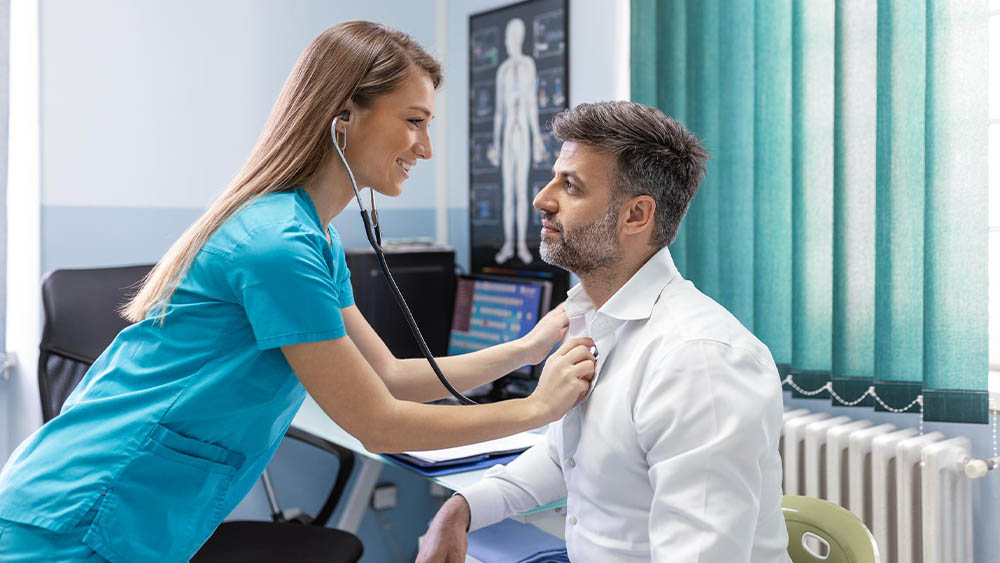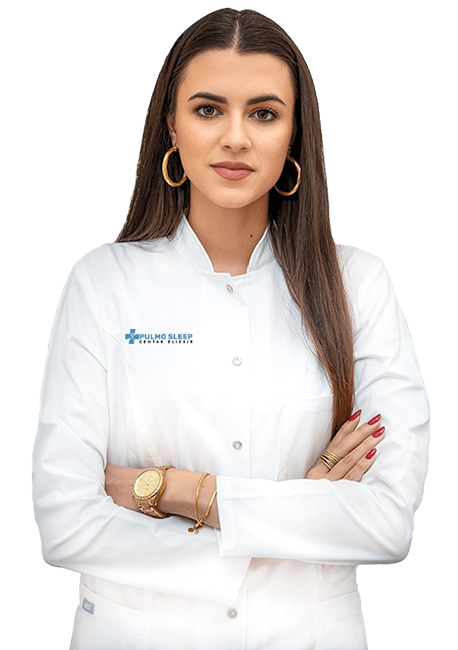Cash
Through a current account
Electronic card (Visa, Master, Dina, etc.)

First examination by a doctor, a general medicine specialist (including ECG, pulse oximetry, blood sugar measurement), Belgrade, TOP PRICE✓ first examination✓
Call us and get informed about current DISCOUNTS!
The first examination by a general medicine specialist represents a thorough assessment of the patient's general health condition and enables an accurate diagnosis and an appropriate treatment plan. This examination is comprehensive and includes a detailed discussion with the patient about his medical history, current symptoms, lifestyle habits and family, which helps the doctor get a clear picture of the general state of health. In addition to the classic physical examination, during the first examination the specialist also uses modern diagnostic methods such as electrocardiogram (ECG), pulse oximetry and measurement of blood sugar levels, in order to obtain the most complete picture of the functioning of the organism and detect potential health risks.
The first examination begins with a conversation with the patient, during which the doctor asks questions about symptoms, medical history, and risk factors such as smoking, diet, and physical activity. After that, the doctor performs a physical examination in which he measures vital parameters, such as blood pressure, pulse, body temperature and body weight.
The specialist then uses several diagnostic tools to further assess the patient's condition:
Electrocardiogram (ECG): This test allows the doctor to evaluate how the heart is working and identify any abnormalities in the heart's activity, such as arrhythmias, heart attacks, or other heart problems.
Pulse oximetry: This simple test measures the level of oxygen in the blood, which is important for assessing respiratory function and detecting potential breathing problems.
Measuring blood sugar levels: Controlling blood glucose levels is key to early recognition of diabetes or monitoring sugar levels in people who already have diabetes. This test allows the doctor to see the state of the patient's metabolism.
Based on all these results, the doctor can make a diagnosis, refer the patient to further tests if necessary, or start the appropriate treatment.
The duration of the first examination with a specialist in general medicine, including all diagnostic tests, usually lasts between 30 and 45 minutes. This time is enough for the doctor to conduct a detailed interview with the patient, perform all the necessary tests and provide advice on further treatment and preventive measures. In some cases, if additional analyzes or specialist consultations are required, the examination may take longer.
What tests can a general medicine specialist perform at home?
The specialist can perform ECG recording, interpretation of the results, pulse oximetry and blood sugar measurement in order to get a detailed insight into the patient's health condition.
Is it necessary to prepare the patient specially for these tests?
No special preparation is required, but it is preferable for the patient to be rested and calm during the examination.
When are additional tests such as ECG and pulse oximetry necessary?
These tests are used in patients with suspected cardiovascular or respiratory problems.
Is the EKG result immediately available?
Yes, the doctor immediately interprets the EKG result to provide information about the heart and make recommendations.
First examination by a doctor, specialist in general medicine (including ECG, pulse oximetry, blood sugar measurement)
7.000 rsd
Cash
Through a current account
Electronic card (Visa, Master, Dina, etc.)
Why choose us?
Pulmo Sleep Center Elixir is a real and leading private practice for diagnosing and treating sleep apnea in Serbia.

For free consultations, please call us or send an SMS, Viber or WhatsApp message every working day from 8 am to 5 pm.